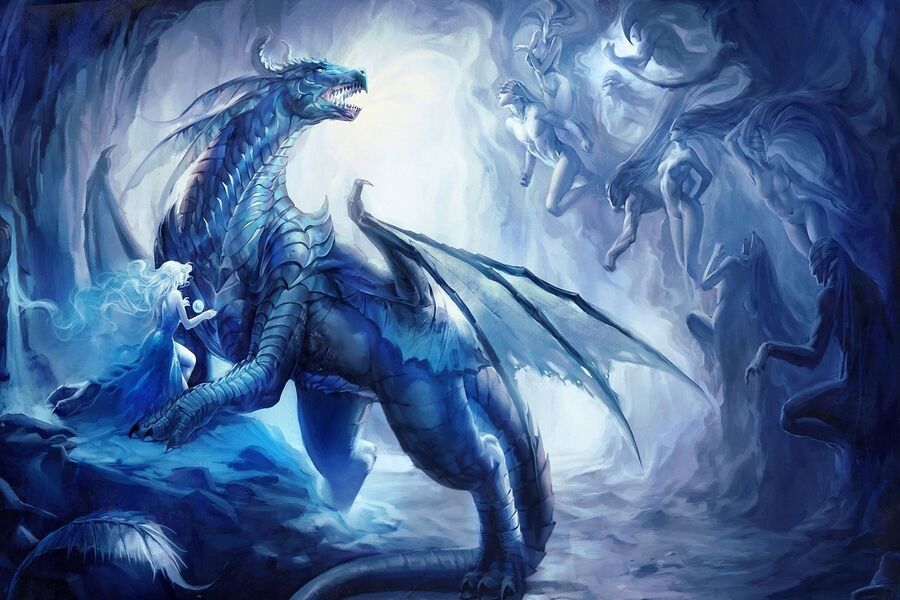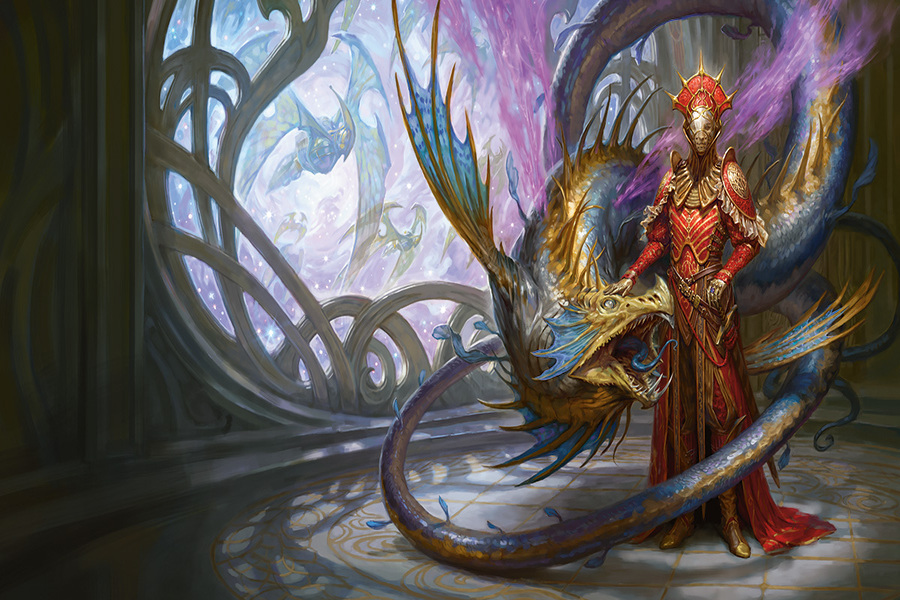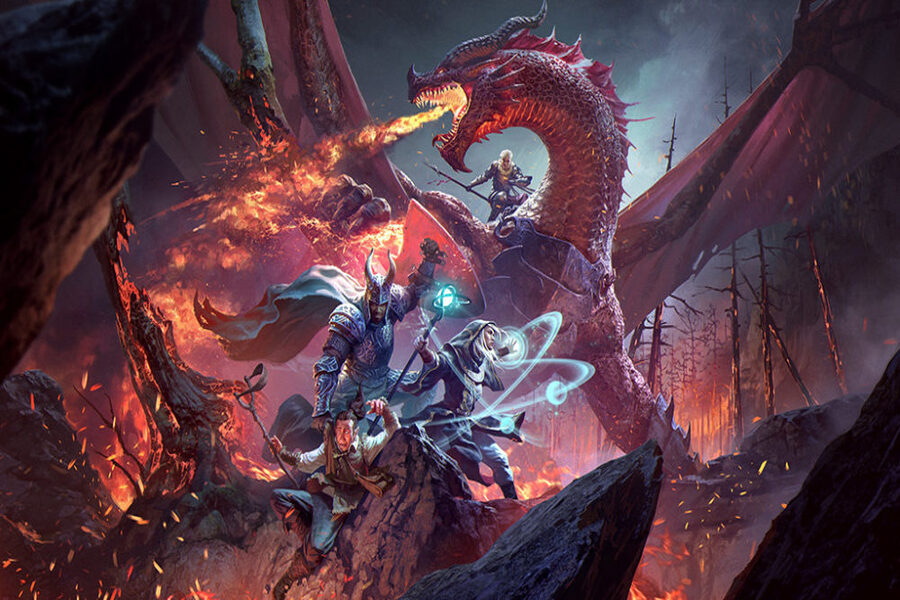Did you know that in Dungeons and Dragons 5th Edition, dragons can live for over a thousand years? That’s right; these majestic creatures are some of the oldest beings in the game.
But does this longevity equate to immortality? You might be wondering if your dragon character will never face the inevitable end that other species do.
Or you’re curious how a dragon’s age impacts its power and abilities on your gaming table.
In this article, we’ll explore the life phases of D&D 5e dragons, investigate whether they possess immortality, and discuss how their advancing age affects their in-game prowess.
Whether you’re a Dungeon Master or just trying to play as a Dragonborn, understanding these aspects about dragons can enrich your gameplay experience. Let’s get started!
Key Takeaways
- Dragons in Dungeons and 5th Edition can live for over a thousand years.
- Dragons age and evolve, progressing through stages of Wyrmling, Young Dragon, Adult Dragon, and Ancient Dragon.
- Dragons in D&D 5e are immortal unless defeated in combat or succumbed to extraordinary situations.
- Dragons gain strength, size, and ability to perform spells as they age.
Related: How To Calculate Damage In DnD 5e? – Quick Guide
Dragon Life Phases In DnD 5e

In DnD 5e, it’s essential to comprehend that dragons go through several life phases. They don’t just appear as immortal beings. The game heavily focuses on the mythological beings‘ distinctiveness, divided into a few stages of the aging process.
We have the Wyrmling stage at the start, where they’re little Immortal In Dnd 5e babies. They’re still quite powerful compared to an average creature but far from their potential peak.
After around five years, they progress into the Young Dragon phase. They’ve grown significantly in size and strength but are still learning to navigate their world.
Next, we have the Adult Dragon phase. They’ve had a good century or two under their belt by now, and their power has grown immensely.
And at last, after hundreds more years pass by, they reach the grand title of Ancient Dragon – this is when you know you’re handling severe fire-breathing business.
Take note, though – despite living for an incredibly long time, dragons in DnD 5e aren’t strictly immortal. They can live for thousands of years if not slain earlier, but eventually, age catches up with them all.
Related: Top 7 Best Weapons For Warlock In DnD 5e
Are D&D dragons immortal?
You’ll be surprised to discover that your beloved tabletop RPG’s formidable, fire-breathing behemoths can stay alive forever, aside from any unfortunate experiences with daring adventurers or other monsters. That’s right! In the Dungeons & Dragons 5th Edition world, dragons are essentially immortal.
Dragons in D&D don’t age in the usual way. They progress through various life cycles – Wyrmling, Young, Adult, and Ancient. An increase in strength and wisdom marks every phase.
But when they reach Ancient status, there isn’t any mention of their demise due to aging.
So, these majestic creatures live unless defeated in combat or succumb to extraordinary situations (like powerful magic).
What does this indicate for your game? Well, it adds an entirely new dimension to dragon encounters. Consider what centuries of knowledge and experience bring: sneaky tactics, intricate plots, and long-standing feuds against certain races or individuals could all be present during an exchange with an ancient dragon.
So remember: when you come across a dragon in D&D 5e – you’re not just facing off a beast; you’re engaging with a creature that has seen empires rise and fall!
Is Immortality a Trait of Certain Dragon Types?

Despite what you may believe, not all types of these mythical creatures possess the trait of everlasting life. Dragons in D&D 5th Edition (D&D 5E) are incredibly potent creatures with extended lifespans but are not immortal.
They age, evolve, and eventually pass away like any other living creature in the game. Let’s explore the specifics.
There are a few different types of dragons in D&D 5E – chromatic dragons, metallic dragons, and shadow dragons, to name a few. While each type has unique abilities and features, none have inherent immortality.
There are four distinct ages that a dragon can reach:
Wyrmling, Young, Adult, and Ancient. They gain tremendous strength as they go through these phases, which can take hundreds to thousands of years. Not even the oldest dragon can stop the passage of time.
Therefore, while it’s true that a dragon in D&D can live much longer than most other creatures in the realm due to their extended lifespan trait – they aren’t invincible to time.
Remember this when writing tales of these majestic creatures in your next campaign!
Related: Top 7 Best Paladin Armors & Weapons In DnD 5e
How does dragon age affect its abilities and power in the game?

Believe it or not, a dragon’s abilities and power levels in the game go through ‘the roof’ as they age! As dragons grow older, they gain more abilities and become stronger creatures. Four main factors demonstrate this transition:
- Size: Dragons start small, but their size increases as they age. This expansion impacts their hit points and damage potential.
- Breath Weapon: With each age category, a dragon’s breath weapon becomes more potent, dealing significant damage.
- Spellcasting Ability: Older dragons have more fantastic spellcasting abilities than younger ones. They can cast higher-level spells, which can decide the result of battles.
- Legendary Actions: Mature dragons gain access to legendary actions enabling them to take extra turns outside their typical turn sequence.
As you traverse your journey in DnD 5e, understanding these changes will help you strategize better when facing these mythical beasts.
Though an elder dragon may be more difficult due to its increased power and skill set, overcoming such formidable foes can yield greater rewards and experiences!
Conclusion
In the magical world of DnD 5e, dragons aren’t immortal. Each phase of their life represents growth, wisdom, and power. As they age, their capabilities change like a sword’s under construction in fire.
Even the most powerful dragon can’t escape the passage of time. Therefore, when you face one in your game, please respect its ancient knowledge and confront its fiery wrath with bravery!







[…] Related: Are Dragons Immortal In Dnd 5e? – All You Need To Know […]
[…] Related: Are Dragons Immortal In DnD 5e? […]
[…] Related: Are Dragons Immortal In Dnd 5e? – All You Need To Know […]